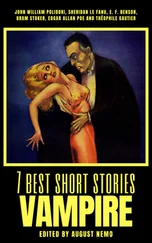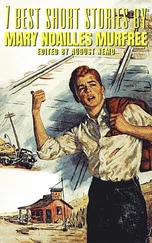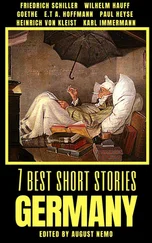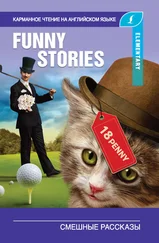At midnight Santa slipped softly out of the ranch-house, clothed in something dark and plain. She paused for a moment under the live-oak trees. The prairies were somewhat dim, and the moonlight was pale orange, diluted with particles of an impalpable, flying mist. But the mock-bird whistled on every bough of vantage; leagues of flowers scented the air; and a kindergarten of little shadowy rabbits leaped and played in an open space nearby. Santa turned her face to the southeast and threw three kisses thitherward; for there was none to see.
Then she sped silently to the blacksmith-shop, fifty yards away; and what she did there can only be surmised. But the forge glowed red; and there was a faint hammering such as Cupid might make when he sharpens his arrow-points.
Later she came forth with a queer-shaped, handled thing in one hand, and a portable furnace, such as are seen in branding-camps, in the other. To the corral where the Sussex cattle were penned she sped with these things swiftly in the moonlight.
She opened the gate and slipped inside the corral. The Sussex cattle were mostly a dark red. But among this bunch was one that was milky white – notable among the others.
And now Santa shook from her shoulder something that we had not seen before – a rope lasso [125]. She freed the loop of it, coiling the length in her left hand, and plunged into the thick of the cattle.
The white cow was her object. She swung the lasso, which caught one horn and slipped off. The next throw encircled the forefeet and the animal fell heavily. Santa made for it like a panther; but it scrambled up and dashed against her, knocking her over like a blade of grass.
Again she made her cast, while the aroused cattle milled around the four sides of the corral in a plunging mass. This throw was fair; the white cow came to earth again; and before it could rise Santa had made the lasso fast around a post of the corral with a swift and simple knot, and had leaped upon the cow again with the rawhide hobbles.
In one minute the feet of the animal were tied (no record-breaking deed) and Santa leaned against the corral for the same space of time, panting and lax.
And then she ran swiftly to her furnace at the gate and brought the branding-iron, queerly shaped and white-hot.
The bellow of the outraged white cow, as the iron was applied, should have stirred the slumbering auricular nerves and consciences of the near-by subjects of the Nopalito, but it did not. And it was amid the deepest nocturnal silence that Santa ran like a lapwing back to the ranch-house and there fell upon a cot and sobbed – sobbed as though queens had hearts as simple ranchmen’s wives have, and as though she would gladly make kings of prince-consorts, should they ride back again from over the hills and far away.
In the morning the capable, revolvered youth and his vaqueros set forth, driving the bunch of Sussex cattle across the prairies to the Rancho Seco. Ninety miles it was; a six days’ journey, grazing and watering the animals on the way.
The beasts arrived at Rancho Seco one evening at dusk; and were received and counted by the foreman of the ranch.
The next morning at eight o’clock a horseman loped out of the brush to the Nopalito ranch-house. He dismounted stiffly, and strode, with whizzing spurs, to the house. His horse gave a great sigh and swayed foam-streaked, with down-drooping head and closed eyes.
But waste not your pity upon Belshazzar, the flea-bitten sorrel. To-day, in Nopalito horse-pasture he survives, pampered, beloved, unridden, cherished record-holder of long-distance rides.
The horseman stumbled into the house. Two arms fell around his neck, and someone cried out in the voice of woman and queen alike: “Webb – oh, Webb!”
“I was a skunk,” said Webb Yeager.
“Hush,” said Santa, “did you see it?”
“I saw it,” said Webb.
What they meant God knows; and you shall know, if you rightly read the primer of events.
“Be the cattle-queen,” said Webb; “and overlook it if you can. I was a mangy, sheep-stealing coyote.”
“Hush!” said Santa again, laying her fingers upon his mouth. “There’s no queen here. Do you know who I am? I am Santa Yeager, First Lady of the Bedchamber. Come here.”
She dragged him from the gallery into the room to the right. There stood a cradle with an infant in it – a red, ribald, unintelligible, babbling, beautiful infant, sputtering at life in an unseemly manner.
“There’s no queen on this ranch,” said Santa again. “Look at the king. He’s got your eyes, Webb. Down on your knees and look at his Highness.”
But jingling rowels sounded on the gallery, and Bud Turner stumbled there again with the same query that he had brought, lacking a few days, a year ago.
“‘Morning. Them beeves is just turned out on the trail. Shall I drive ’em to Barber’s, or –”
He saw Webb and stopped, open-mouthed.
“Ba-ba-ba-ba-ba-ba!” shrieked the king in his cradle, beating the air with his fists.
“You hear your boss, Bud,” said Webb Yeager, with a broad grin – just as he had said a year ago.
And that is all, except that when old man Quinn, owner of the Rancho Seco, went out to look over the herd of Sussex cattle that he had bought from the Nopalito ranch, he asked his new manager:
“What’s the Nopalito ranch brand, Wilson?”
“X Bar Y,” said Wilson.
“I thought so,” said Quinn. “But look at that white heifer there; she’s got another brand – a heart with a cross inside of it. What brand is that?”
Hygeia [126]at the Solito
If you are knowing in the chronicles of the ring you will recall to mind an event in the early ’nineties when, for a minute and sundry odd seconds, a champion and a “would-be” faced each other on the alien side of an international river. So brief a conflict had rarely imposed upon the fair promise of true sport. The reporters made what they could of it, but, divested of padding, the action was sadly fugacious. The champion merely smote his victim, turned his back upon him, remarking, “I know what I done to dat stiff,” and extended an arm like a ship’s mast for his glove to be removed.
Which accounts for a trainload of extremely disgusted gentlemen in an uproar of fancy vests and neck-wear being spilled from their pullmans in San Antonio in the early morning following the fight. Which also partly accounts for the unhappy predicament in which “Cricket” McGuire found himself as he tumbled from his car and sat upon the depot platform, torn by a spasm of that hollow, racking cough so familiar to San Antonian ears. At that time, in the uncertain light of dawn, that way passed Curtis Raidler, the Nueces County cattleman – may his shadow never measure under six foot two.
The cattleman, out this early to catch the south-bound for his ranch station, stopped at the side of the distressed patron of sport, and spoke in the kindly drawl of his ilk and region, “Got it pretty bad, bud?”
“Cricket” McGuire, ex-feather-weight prizefighter, tout, jockey, follower of the “ponies,” all-round sport, and manipulator of the gum balls and walnut shells, looked up pugnaciously at the imputation cast by “bud.”
“G’wan,” he rasped, “telegraph pole. I didn’t ring for yer.”
Another paroxysm wrung him, and he leaned limply against a convenient baggage truck. Raidler waited patiently, glancing around at the white hats, short overcoats, and big cigars thronging the platform. “You’re from the No’th, ain’t you, bud?” he asked when the other was partially recovered. “Come down to see the fight?”
“Fight!” snapped McGuire. “Puss-in-the-corner! ’Twas a hypodermic injection. Handed him just one like a squirt of dope, and he’s asleep, and no tanbark needed in front of his residence. Fight!” He rattled a bit, coughed, and went on, hardly addressing the cattleman, but rather for the relief of voicing his troubles. “No more dead sure t’ings for me. But Rus Sage himself would have snatched at it. Five to one dat de boy from Cork wouldn’t stay t’ree rounds is what I invested in. Put my last cent on, and could already smell the sawdust in dat all-night joint of Jimmy Delaney’s on T’irty-seventh Street I was goin’ to buy. And den – say, telegraph pole, what a gazaboo [127]a guy is to put his whole roll on one turn of the gaboozlum [128]!”
Читать дальше
Конец ознакомительного отрывка
Купить книгу
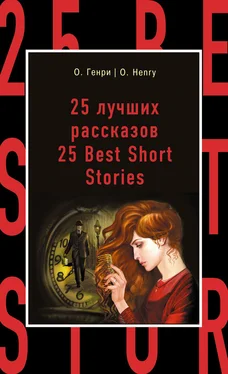
![Коллектив авторов - Best Short Stories [С англо-русским словарем]](/books/26635/kollektiv-avtorov-best-short-stories-s-anglo-thumb.webp)


